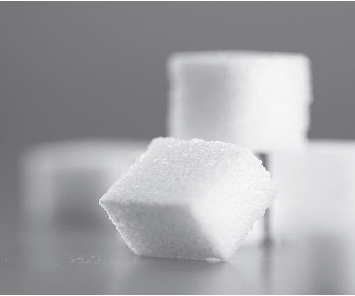Ready for CARB 101?
The demonization of fructose in the last decade caused Big Agra industry pundits to call foul. They claim that their cheap, industrialized “high-fructose corn syrup,” which is manufactured to contain either 42 percent or 55 percent fructose content, gets a bad rap, and they claim that evidence shows regular cane sugar is no better. Well, regular cane sugar is 50 percent fructose, so they are right; cane sugar is no better than high-fructose corn syrup. But they are also wrong; the fructose component may be the primary problem with excess sugar intake, feeding obesity, fatty liver, and insulin resistance.[i] No person, with or without insulin resistance, should consume more than 20 grams of fructose per day.
Natural and processed sweeteners need to be counted carefully because of their concentrated fructose sugar, lack of nutrition, and fiber. Fruits are another potential source of fructose.
Fructose Fruit Content – Avoid the Top of the Fructose List
* If you have no insulin resistance, limit the high-fructose fruits, but if you express slight to severe insulin resistance, most fruit, especially those with fructose levels above 3g/serving, should be avoided.
Simple Sugar Summary
Simple sugar comes from sweeteners, fruit sugar, and milk sugar (lactose). Vegetables, legumes, and grains have no fructose, and have insignificant simple sugar content; they are referred to as complex carbs.
Complex Carbohydrates and The Blood Code Diet
A complex carbohydrate means that the glucose comes from a compound called polysaccharide, a molecule that remarkably resembles the stored form of sugar in mammals called glycogen. As mentioned above, vegetables, beans, and grains contain the complex carb, although there are a few exceptions (e.g., corn and beets, which are used to make processed sugar, but in their natural, whole-food state, have an inconsequential 2 to 4 percent simple sugar content).
With complex carbs, what you see is what you get. The carb content gets readily absorbed and is with you for the next several hours. There is no delayed blood sugar effect to your liver, as happens with fructose.
Many books and diet experts wrongly claim that complex carbs are good for people with insulin resistance. They go so far as to tell people with type 2 diabetes that they should switch from simple sugars to complex carbs. This is not a trade that cures. Certainly, you should choose complex carbs instead of simple carbs whenever possible, but for the sake of your Blood Code, a carb is a carb. Choose vegetable sources of starch, rather than juice or sugar. However, you can’t switch from a candy bar with 40 grams of carb to a whole-wheat bagel with 40 grams of carb and think that by doing so, you will improve your prediabetes. There are ways to slow and offset the speed at which the carb hits your bloodstream—Fat, Soluble Fiber and Fermentation. The Blood Code Book help you see how to do this best FOR YOU!
—Richard Maurer, ND
[i] Bocarsly, M. E., et al. High-fructose corn syrup causes characteristics of obesity in rats: Increased body weight, body fat and triglyceride levels. Pharmacol Biochem Behav, 2010 Nov; 97(1):101–6.





Comments are closed.